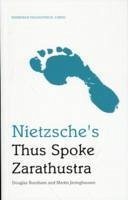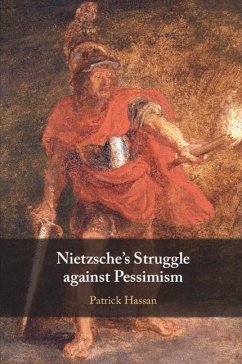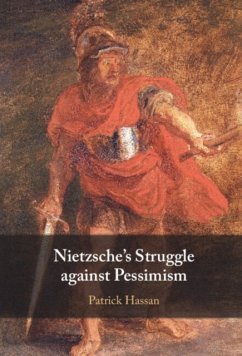
Nietzsche's Unfashionable Observations
Versandkostenfrei!
Versandfertig in 2-4 Wochen
33,99 €
inkl. MwSt.

PAYBACK Punkte
17 °P sammeln!
Presupposing no prior knowledge of Nietzsche or Observations, Jeffrey Church sets the book in its historical and philosophical context, guides you through the text section-by-section and develops a structural overview of each of the four essays in it. He reveals how the common themes of freedom, culture and genius unify the book.












